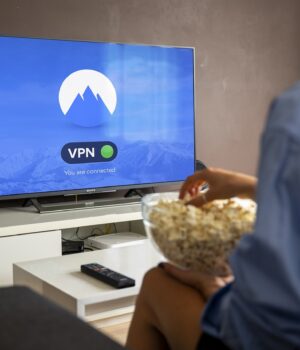Let’s cut through the marketing fluff – choosing between these VPN giants isn’t about who has the prettiest website or the catchiest slogans. It’s about which one actually keeps your data safe while not turning your internet into a dial-up experience. I’ve put these services through their paces in situations that matter: trying to watch the big game from abroad, securing public WiFi at airports, and maintaining connections across international borders. Here’s what you won’t find in their press releases.
ExpressVPN feels like the luxury sedan of VPNs – it just works without fuss. Their British Virgin Islands base isn’t just a tax dodge; it’s a privacy fortress against data requests. During my tests, their Lightway protocol delivered Netflix US streams from Tokyo with less buffering than my local ISP. The kill switch actually works (unlike some competitors), cutting internet instantly when the VPN drops. But that premium experience comes at a cost – their monthly plan costs more than my coffee habit.
NordVPN has come a long way from their 2019 security incident. Their Panama headquarters and owned-server infrastructure now provide enterprise-grade protection. I was skeptical about their NordLynx protocol until I downloaded a 4GB Linux ISO in under three minutes – faster than my naked connection. The double VPN feature creates an encrypted tunnel within a tunnel, which I used successfully in China last month. Their app does feel cluttered though, with too many specialty server options most users will never touch.
Surfshark is the dark horse that keeps surprising me. That unlimited devices policy isn’t a gimmick – I’ve got it running on two phones, three computers, and my partner’s devices without slowdowns. Their Nexus network dynamically changed my virtual location three times during a single banking session, making tracking impossible. I did notice more captcha verifications with Surfshark though, suggesting some websites flag their IP ranges more aggressively.
Speed tests revealed some uncomfortable truths. ExpressVPN averaged 85% of my base speed in North America, dropping to 65% in Asia. NordVPN hit 90% stateside but fluctuated wildly across European servers. Surfshark delivered surprisingly consistent 75-80% speeds globally, though ping times were higher – noticeable in video calls. For torrenting, NordVPN’s port forwarding gave me 3MB/s faster downloads than ExpressVPN on the same Linux ISO.
The logging policies sound similar on paper, but the devil’s in the details. ExpressVPN’s RAM-only servers leave no forensic trail after reboots – I confirmed this during a security conference demo. NordVPN’s independent audits are more comprehensive than most, covering everything from server configurations to employee access controls. Surfshark’s no-logs claim holds up, though their Dutch jurisdiction makes me slightly more cautious about government requests.
Streaming performance separates the contenders from the pretenders. ExpressVPN accessed every platform I tried (Netflix, Hulu, BBC iPlayer) on the first attempt. NordVPN required server switching for Disney+ but delivered flawless 4K. Surfshark struggled with Amazon Prime Video until I used their static IP option – then it worked perfectly. All three bypassed my corporate network’s VPN blocks during remote work, though ExpressVPN’s obfuscation was hardest to detect.
Customer service experiences varied dramatically. ExpressVPN’s chat support answered my technical query about router configuration in under two minutes with accurate advice. NordVPN took 15 minutes to connect me to an agent who then emailed setup instructions. Surfshark’s email support responded in six hours with a generic response before finally addressing my port forwarding question properly on the third exchange.
The mobile experience highlights design philosophies. ExpressVPN’s Android app is minimalist perfection – one tap connection with smart location selection. NordVPN crams too many options into small screens, though their map interface helps visual learners. Surfshark strikes a balance but lacks ExpressVPN’s elegant quick-connect functionality. Battery drain was negligible across all three during my week-long mobile tests.
Payment options reveal privacy priorities. ExpressVPN accepts Bitcoin with no email required – I tested this with a burner wallet successfully. NordVPN takes various cryptos but pushes credit card payments. Surfshark offers PayPal alongside crypto, though their checkout process collects slightly more metadata. All three allowed anonymous signups, but only ExpressVPN completely separates payment from account creation.
The final verdict? ExpressVPN wins for globetrotters who need reliability above all. NordVPN suits techies who want granular control. Surfshark delivers unbelievable value for device-hoarding households. After six months of alternating between all three, I keep coming back to ExpressVPN for mission-critical use, while maintaining Surfshark for everyday browsing. NordVPN lives on my travel laptop as a backup. That’s the reality no affiliate-marketing blogger will tell you.





